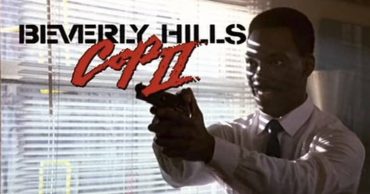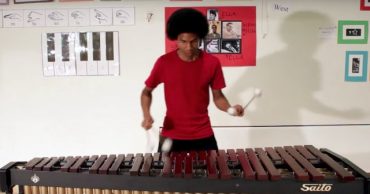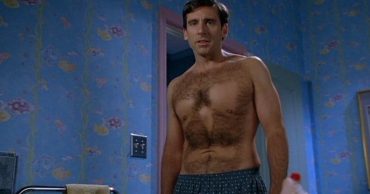Warren Zevon was an unmistakable talent who possessed an indefinable original genius. An excitable boy they all said. Sadly, the greatness of the singer-songwriter was never truly recognized in his own time, mainly of his own doing. Best known for his 1978 soulful, funky anthem “Werewolves of London”, he turned in a brilliant yet tragic career that spanned from the late 60s until his death in 2003. Zevon was quick to sabotage his greatest chances at superstardom, always more comfortable along the borders of the spotlight rather than in the center of it. As he stated in a 2002 Rolling Stone interview shortly before succumbing to cancer at the age of 56, “I don’t remember stardom with any longing. My success was a fluke. I was a folk singer who accidentally had one big hit”.
As Taylor Goldsmith, “the 33-year-old frontman of the L.A. folk-rock band Dawes, and a committed Zevon acolyte ” (Hyden) puts it, “He sounded uncertain. There isn’t anybody like Warren Zevon now – nobody so recklessly, and cursedly, messy” (Hyden). Zevon’s work will always remain relevant because behind all of his masterful musical phrasing and vibrant lyrics, “his songs recognize something true and deep inside your heart that you don’t feel comfortable sharing with most people” (Hyden). Above all, Zevon was honest and didn’t hesitate to capitalize on the emotion that his music evoked. The music of Warren Zevon simply has a distinctive feel that is conducive to the reception of feeling with its ability to impress upon a moment. The following examples illustrate a few choice instances where the music of Warren Zevon has been particularly effective in a television scene since his premature death.
Boston Legal (2006) – “Keep Me in Your Heart”
From S: 2, E: 12 – The ABC comedy-drama series Boston Legal (2004-2008) capitalized upon the song’s genuine heartfelt emotion and sincere vulnerability long before it “became a go-to tearjerker for melodramatic TV dramas” (Hyman).
The scene is set as high powered lawyer Denise Bauer (Julie Bowen) and her former client turned love interest Daniel Post (Michael J. Fox) embrace each other after first consummating their relationship. As the two lay in bed, fondly replaying that days magnificent court victory, it is clear that for the first time, each have strong feelings for the other. Suddenly, as the opening chords from “Keep Me in Your Heart” arise out of the ether, Daniel looks into Denise’s eyes and tells her that he “starts chemo again tomorrow”. Denise decisively retorts “Okay”, inferring that she is fully invested to make this a joint challenge. The first lines of Zevon’ s weary and warm voice now bleed into resonance as he sings “Shadows are fallin’ and I’m runnin’ out of breath/Keep me in your heart for a while/ If I leave you it doesn’t mean I love you any less/Keep me in your heart for a while”.
The song is off his last album, “The Wind”. Zevon knew this would be his last album. He started work on it almost immediately after receiving the news that he had terminal cancer. His doctors gave him three months to live. “Keep Me in Your Heart” comprises Zevon’s “beautiful if inevitably maudlin farewell” (Hyden).
The scene concludes with Denise sitting in the dark, illuminated only by her computer screen with Daniel asleep in the background. The song continues: “When you get up in the mornin’ and you see that crazy sun/Keep me in your heart for a while/ There’s a train leavin’ nightly called ‘When All is Said and Done’/Keep me in your heart for a while”. With those poignant words floating over the scene, it is revealed that Denise is researching miracle cancer cures on her computer with tears swelling in her eyes as the scene and the song fade out.
This is a soft and inviting scene drenched with the realization of love and mortality. The character of Daniel Post has been established within the plotline to be dying of cancer as Zevon was when he wrote and recorded the song. The parallels of the circumstances are evident but what is more importantly conveyed is the feeling of the situation. As Zevon sings that “Shadows have fallin’ and I’m runnin’ out of breath”, the lyrics encapsulate the situation of Post. What is better illustrated, however, is the realization for Denise. The song focuses upon fond remembrance but Denise does not want to keep Daniel in her heart, she wants to keep him in her life. For the first time, it has dawned on Denise just how much Daniel means to her. As she searches for miracle cancer cures, she is well aware that a train leaves nightly called when all is said and done and is grateful Daniel is not on it this night. Through Zevon’s joyful plea, the fact remains that he will not be here much longer. In Denise’s case, she knows that Daniel will undoubtedly leave her, but that doesn’t mean that he loves her any less.
Blue Bloods (2013) – “Knockin’ on Heaven’s Door”
From S: 4, E: 7 — The CBS police-family drama Blue Bloods (2010-) has never needed help expressing the weight of Catholic guilt but in a heavy scene, Warren Zevon’s cover of a Dylan classic helps drive the nail into the cross. Detective Danny Reagan (Donnie Wahlberg) takes his job very personally which tends to act as both blessing and curse. When Danny needs help with a tricky case, he seeks out an old acquaintance, a former narcotics cop named Gary (Frank Whaley). Gary reluctantly agrees to help Danny with the dangerous case in exchange for an old debt being forgiven. When Danny finds Gary’s lifeless body with its throat slit, he takes it personally to say the least. The only thought that Danny can hold in his head is that Gary would be alive if it weren’t for him. The guilt Danny feels is all consuming so he does what any good Catholic would do, he goes to confession.
The somber opening strings begin as Danny reaches the front steps of his church. Danny then makes his way down the center of the shadow infused, lifeless cathedral as the scene is enveloped by the worn vocals of Warren Zevon. Dylan’s words have never resonated with such familiarity as Zevon sings: “Mama, take this badge off of me”. Danny expresses a mournful sigh as the song continues: “I can’t use it anymore”. When Danny reaches the front of his house of worship and takes a seat in the front pew, his priest inquires confusedly, “Danny Reagan in church on a Monday?” Zevon resumes: “It’s gettin’ dark, too dark to see”. Monsignor Donahue cautiously asks “everything okay?” As Zevon coldly states: “I feel like I’m knockin’ on heaven’s door”, Danny’s only recourse is to bow his head and through tears gently utter, “Bless me, Father, for I have sinned”. Seeing the situation far more grievous than originally thought, the priest then sits next to Danny to hear his confession as the haunting Zevon chorus, “Knock, Knock, Knockin’ on Heaven’s Door” continues as the episode fades to black.
This is an especially moving scene, beautifully constructed and brilliantly executed. The solemn sentiment that Donnie Wahlberg is able to convey matches the resigned Zevon vocal in both content and tone. This song also appears on Zevon’s 2003 album, “The Wind”, which he decided to record on a whim to show his appreciation to Dylan. Dylan, who had recently begun to play some Zevon songs in his live shows in homage, actually wrote the song for the 1973 motion picture “Pat Garrett and Billy the Kid”. The song was played over a scene of a dying law man. As the opening lines plea to “take this badge off of me” because “I can’t use it anymore”, the audience is well aware that Gary, the man whose death Danny feels responsible for, was a former cop. In both sequences, the song is successful in conveying the seriousness of the scene, however, the argument could be made that the song is even more fitting for its use in Blue Bloods. Dylan merely penned the words depicting a fictional dying man. When Zevon sings that he is knockin’ on heaven’s door, the words truly reverberate from death’s doorstep.
True Detective (2019) – “Desperados Under the Eaves”
From S: 3, E: 5 — In the third iteration of the HBO hit series, the mind fatiguing narratives that seamlessly flow between three separate eras are on full display. Zevon’s magnum opus serves to flawlessly frame and perfectly punctuate the tone of a pivotal concluding scene at the turning point in the season. Detectives Wayne “Purple” Hays (Mahershala Ali) and Roland West (Stephen Dorff) cannot escape the plaguing mystery of the death of an adolescent boy and the unsolved disappearance of his kid sister. With new riddled clues and hesitant memory, the two men reunite in 2015 in an attempt to finally answer the questions still open from the horrific and confounding case they originally began investigating in 1980. As the two men, now retired and in their 70s, sit and reminisce on Roland’s back porch about days gone by, the real reason for Purple’s visit becomes painfully apparent.
Purple wants to solve the case that has defined the men’s lives for the past thirty-five years and he needs his old partner’s help. He is aggressively slipping into dementia. As the two men sit in the approaching twilight, Roland makes it clear that he can’t reenter the fray, saying he would have been fine to have a drink and watch the sun go down. Purple makes his final plea, stating that “with whatever brains I got left, I wanna finish this”. It is clear that there is a race against inevitable mental deterioration and the need for closure and redemption. Purple appeals with whatever he has left, telling Roland, “70 year old black man going bat-shit crazy running around, badge and gun…you shouldn’t miss that”. Roland looks at his old partner with a wry smile and says, “Well, I could use a laugh”.
Cut to a rear establishing shot that eloquently frames the two men sitting under the eaves of the porch. As the shot slowly pans from left to right, the two figures disappear from the frame with a slow zoom concentrated on the tall trees to reveal their silhouettes against the setting sun. Simultaneously, the picture fades to black and the crescendo of “Desperados Under the Eaves” commences. Zevon’s strong vocal bellow the lyrics as though they were written specifically with the previous scene in mind: “Don’t the sun look angry through the trees/Don’t the trees look like crucified thieves/Don’t you feel like Desperados under the eaves/Heaven help the one who leaves”.
This powerful scene is about realizing conclusion and no song could better conclude it. Of this scene, True Detective creator Nic Pizzolatto states that beyond the actor’s amazing performances, “what I like are all the shifting tones and that sort of zigzagging between these complicated emotions”. Shifting tones and complicated emotions are familiar participants in Zevon songs and are particularly potent in “Desperados Under the Eaves”. “Lyrically, ‘Desperados’ is his most writerly tune. Musically, it features his grandest melody ” (Hyden). The legendary Jackson Browne refers to the song as a Zevon “literary masterpiece”. “Desperadoes Under the Eaves” appears on Zevon’s 1976 self titled album but it sure seems as if it were written for Purple and Roland in 2019. As the two men sit watching the sun looking angry through the trees, they sit under the eaves, and there is certainly no doubt that the pair are desperados. The song not only precisely captures Purple and Roland in the physical realm, but it perfectly encapsulates the mood of the story at this critical point in the series. That sitting here, with the discontented sun setting on their lives, it is not too late to rectify the wrongs that have lingered for far too long. Purple needs to be a desperado again, if only to crucify his own doubts and Roland knows he’ll never reach salvation himself if he doesn’t go along or leaves. Heaven help the one who leaves.
Warren Zevon truly had a distinct style that highlighted the best and worst of the human condition. He did this in a rare and unique way and though Zevon often played the martyr, it was rarely accidentally so. He is also an acquired taste. Though blessed with and plagued by creativity, his perspective was never skewed. Not even through the lenses of his fantastical characters. He didn’t try to sugarcoat humanity which is why his songs translate so effectively to the television screen. The fact that Zevon did not shatter records for selling records notwithstanding, he enjoyed the kind of pure success that most true artists can only dream of. What longtime friend Jackson Browne refers to as “the success that matters: this very loyal following of people who truly get him. There’s no greater success than being loved and admired for what you really do”.
 Follow Us
Follow Us



